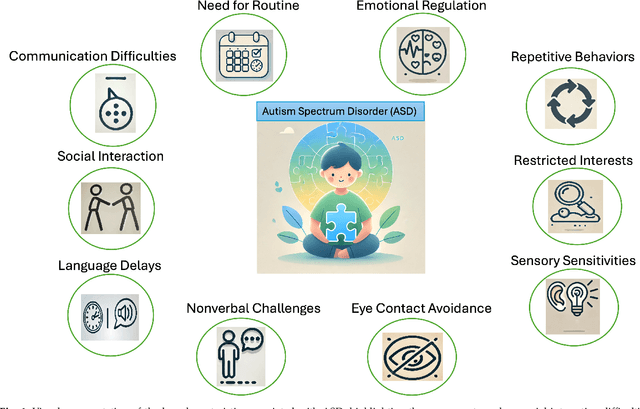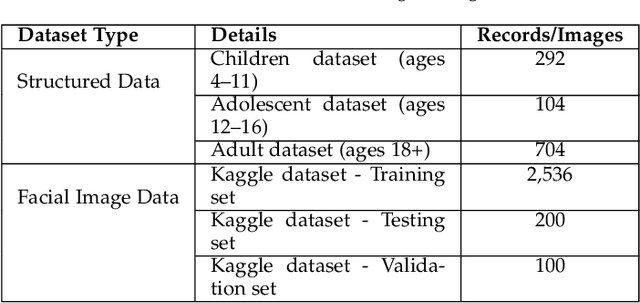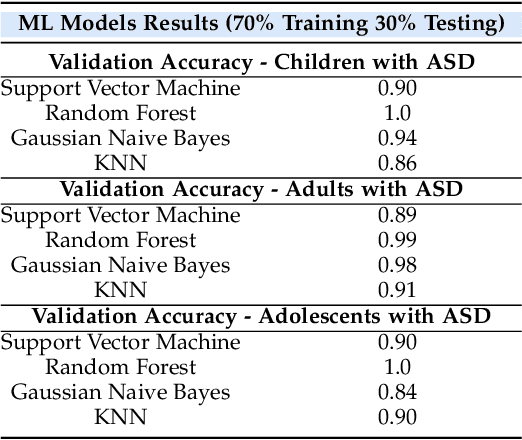Towards Equitable ASD Diagnostics: A Comparative Study of Machine and Deep Learning Models Using Behavioral and Facial Data
Paper and Code
Nov 08, 2024



Autism Spectrum Disorder (ASD) is often underdiagnosed in females due to gender-specific symptom differences overlooked by conventional diagnostics. This study evaluates machine learning models, particularly Random Forest and convolutional neural networks, for enhancing ASD diagnosis through structured data and facial image analysis. Random Forest achieved 100% validation accuracy across datasets, highlighting its ability to manage complex relationships and reduce false negatives, which is crucial for early intervention and addressing gender biases. In image-based analysis, MobileNet outperformed the baseline CNN, achieving 87% accuracy, though a 30% validation loss suggests possible overfitting, requiring further optimization for robustness in clinical settings. Future work will emphasize hyperparameter tuning, regularization, and transfer learning. Integrating behavioral data with facial analysis could improve diagnosis for underdiagnosed groups. These findings suggest Random Forest's high accuracy and balanced precision-recall metrics could enhance clinical workflows. MobileNet's lightweight structure also shows promise for resource-limited environments, enabling accessible ASD screening. Addressing model explainability and clinician trust will be vital.
 Add to Chrome
Add to Chrome Add to Firefox
Add to Firefox Add to Edge
Add to Edge